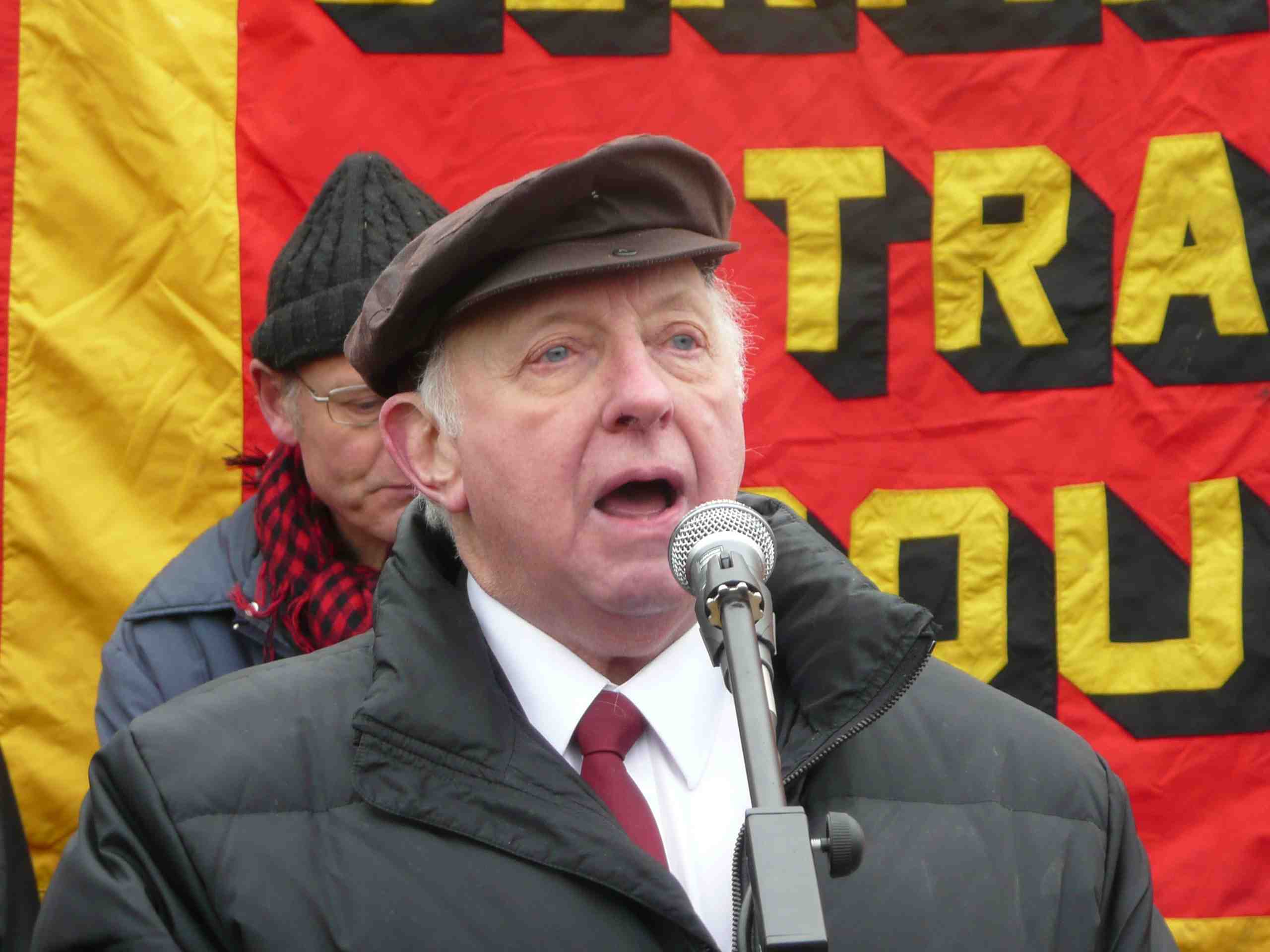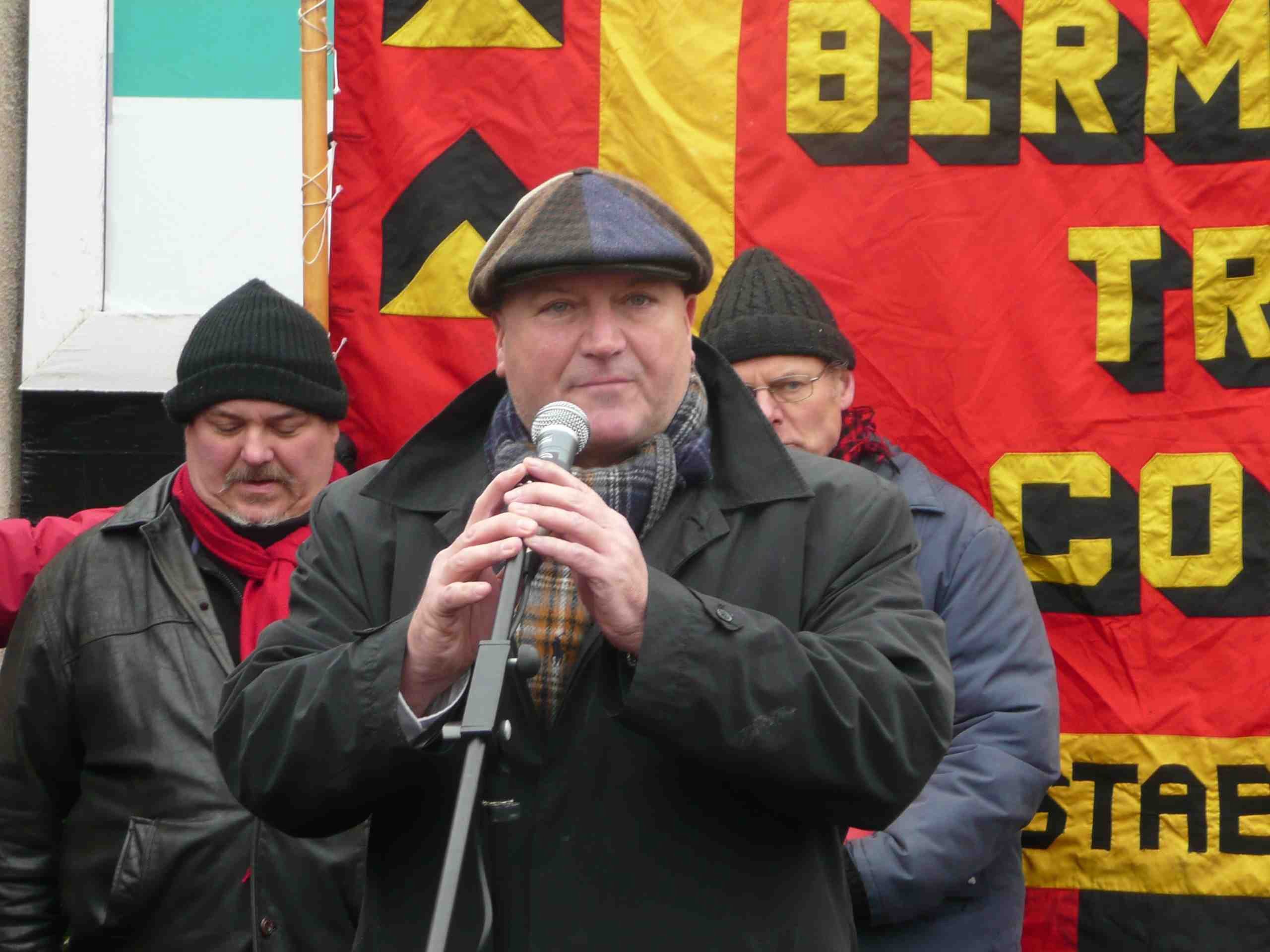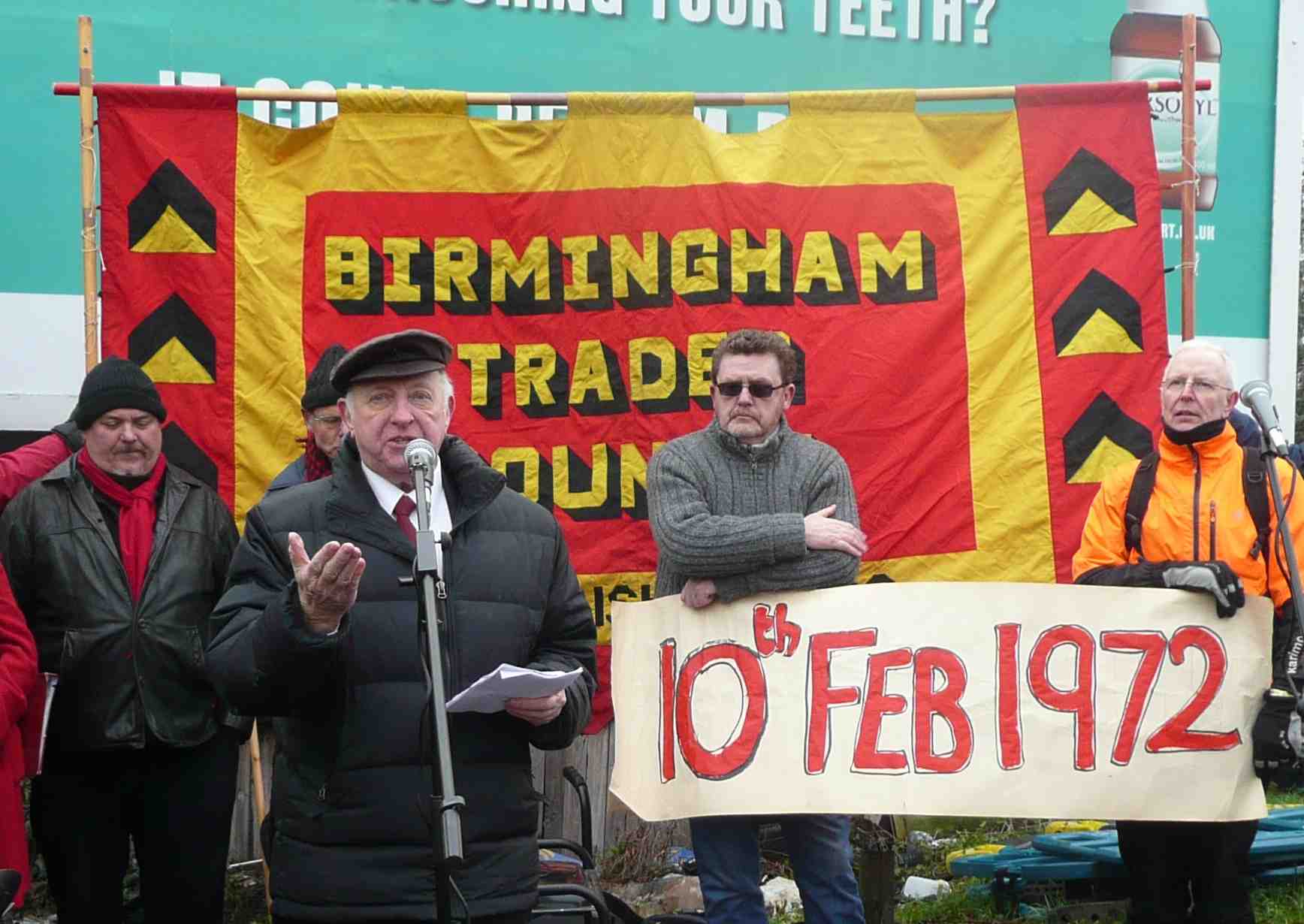It will go down in the annals of the labour movement as one of the
greatest victories that has ever been achieved in Britain. Forty years
ago to the day, when the NUM was picketing the Saltley Coke works in
Birmingham, some 30 to 40,000 engineering workers struck in support
across the city.
It will go down in the annals of the labour movement as one of the greatest victories that has ever been achieved in Britain. Forty years ago to the day, when the NUM was picketing the Saltley Coke works in Birmingham, some 30 to 40,000 engineering workers struck in support across the city. This had been the first national miners’ strike for 50 years. It had begun in January and four weeks later the Coke depot was still open.
Of those engineers who came out on strike in support, more than half of them marched in ranks, wave after wave, to the coke depot to support the NUM picket. The police, who up until that time had succeeded through force of numbers in keeping the depot open, and therefore allowing coke to be lorried out to undermine the NUM strike, realised that the game was up and “allowed” the gates to the depot to be closed.
Nostalgia, tears, anger and determination marked the commemoration today. It had been organised by Birmingham Trades Council and banners from the NUT, Unison, PCS and Justice for the Shrewsbury Pickets were proudly displayed.
Speeches from AUEW and T&GWU reps from the 1970s were interwoven with contributions from Ken Capstick, former vice-president of the Yorkshire NUM; Arthur Scargill of the NUM and Bob Crow of the RMT. All had come to pay tribute to the miners and engineering workers of the 1970s who joined together in an act of solidarity that ended in victory for the working class on that day.
The Birmingham trade unionists, both men and women, who came out in support, did not worry about losing a day’s pay by their actions. They felt and acted instinctively and responded to the call from their shop stewards and convenors to down tools. And it had taken two days to achieve that outcome with constant meetings between the NUM, T&GWU and the AUEW across Birmingham.
 The anger today was reserved for the leadership of the Labour Party. Once again the living standards of the working class are under attack due to the crisis of capitalism. Wages for electricians in the building industry, as only one example of many, are being slashed by 35%. In the public sector services are under attack and wages are frozen or cut. At a time when the working class needs a programme and leadership to defend their interests, the Labour Party is found wanting. It remains silent when workers struggle to defend what they have won.
The anger today was reserved for the leadership of the Labour Party. Once again the living standards of the working class are under attack due to the crisis of capitalism. Wages for electricians in the building industry, as only one example of many, are being slashed by 35%. In the public sector services are under attack and wages are frozen or cut. At a time when the working class needs a programme and leadership to defend their interests, the Labour Party is found wanting. It remains silent when workers struggle to defend what they have won.
 As Bob Crow, among many, told those who had gathered today in the freezing cold, the working class needs a party based on socialism. I agree. The question however is how that party going to be built. It is one thing to declare that need. It is another to agree a programme, strategy and tactics to build that party. What is certain is that without putting an end to the anarchy of capitalism the working class will be forced to suffer ever increasing hardships to pay for a crisis that they did not cause.
As Bob Crow, among many, told those who had gathered today in the freezing cold, the working class needs a party based on socialism. I agree. The question however is how that party going to be built. It is one thing to declare that need. It is another to agree a programme, strategy and tactics to build that party. What is certain is that without putting an end to the anarchy of capitalism the working class will be forced to suffer ever increasing hardships to pay for a crisis that they did not cause.
Today we remembered how one section of the working class came to the aid of another section and won. Tomorrow, the same call will go out as unions mobilise to defend the gains of the past, starting with the onslaught on pensions. I have no doubt that our class of today will display the same fighting spirit that was evident on February 10th 1972.






